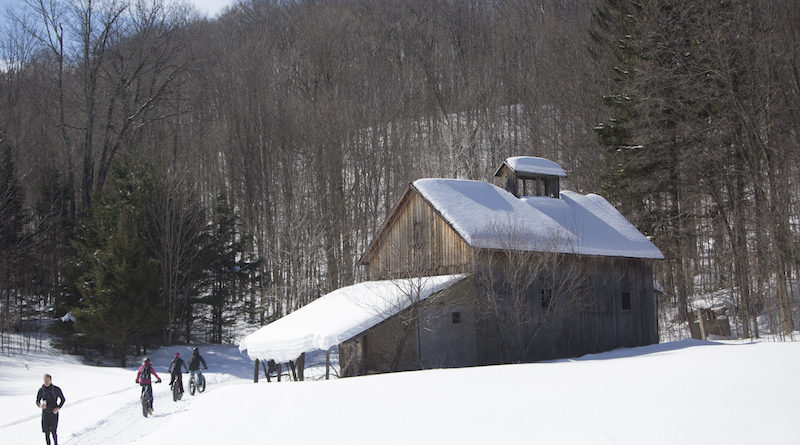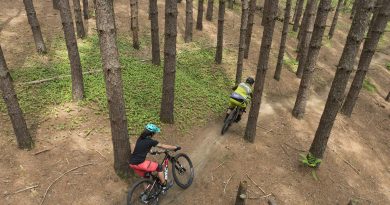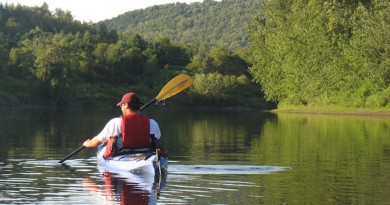Whose Woods Are These?
On Dec. 16, 2017 Dan Purjes on behalf his company, MFW, sent a letter to the town of West Windsor, Vt. that in 30 days he would be revoking use of 104 acres of land that had been key to the rebirth of Mount Ascutney’s trail system.
It was a little like giving a kid coal for Christmas—or, more accurately, taking away last year’s gifts.
For six years, the town, the Sports Trails of the Ascutney Basin, the Trust for Public Land and others worked hard to revitalize the land that was part of the MFW-owned ski resort that closed in 2010. They had built trails, put in signs and, this season, launched a rope tow. The 104 acres were home to 5 miles of some of the best beginner trails for fat biking and mountain biking.
Purjes noted, as reported by The Vermont Standard, that he would be open to renegotiating the lease if there was some tax incentive.
If that sounds familiar it’s because I wrote those words in the Jan./Feb. 2018 issue of Vermont Sports. Two years later, it was déjà vu when we learned (in mid-December, 2019) that three landowners whose property is used by Kingdom Trails were withdrawing permission for mountain biking on their land, as Abagael Giles reports “Kingdom Trails Faces Growing Pains.”
While no specific reasons were given for the withdrawal, there has been increasing concern about the crowding and traffic that have accompanied Kingdom Trails growing popularity. And there have been reports about altercations between riders and landowners.
This also came on the heels of the shuttering of the nearby Victory Hill Sector trails, following a decision that the landowners there had not fulfilled their Act 250 obligations.
All these incidents are reminders of the important role that private landowners have played in generously allowing public recreation and trail building on their land.
According to Vermont Woodlands, a non-profit with more than 1,200 members, 80 percent of Vermont’s forests are privately owned.
It’s by the grace of many landowners and a long-standing Vermont tradition of open access and unposted land that we have been able to carve running paths and mountain bike trails and to snowmobile, hunt and fish on lands we don’t own.
If those lands are used for logging, sugaring or farming, the landowners may get a tax break. If they are simply open for public recreation, the most they often get is a hearty thank you from the trail users. Or, in the case of the Brewster River Mountain Bike Club in Pleasant Valley, near Underhill, a Landowner Appreciation Day. On those days club members and other volunteers show up to stack wood and do other chores for the owners.
However, as Vermont’s trail networks continue to grow and benevolent landowners pass their parcels on to new generations or subdivide, the very trail networks we’ve worked so hard to build and maintain may be at risk of unraveling.
What can we do to both protect the networks of existing trails and provide incentives to landowners to continue to allow trails and recreation on their property? Is there some variation of on the Current Use program that would help ensure the longevity of our trails by providing a reward to those who share their lands, in the same way as there are tax breaks for farmers and foresters and sugarers who maintain a “working landscape”?
This winter, the Legislature will be taking a hard look at many things (ranging from Act 250 to tourism spending) that impact outdoor recreation – a leading source of revenue for many rural areas of the state. Let’s hope that both protecting and growing our trail networks – economic drivers for many of the regions they pass through—is one of them.
And in the meantime, we can all work harder to show our appreciation to those who are sharing their land.
—Lisa Lynn, Editor
Featured Photo Caption: Fatbiking at Kingdom Trails. Photo courtesy Kingdom Trails.





It’s a problem in some places because if you own an undeveloped lot and others make improvements on the property it can be lost to the owner because of squatter’s rights.